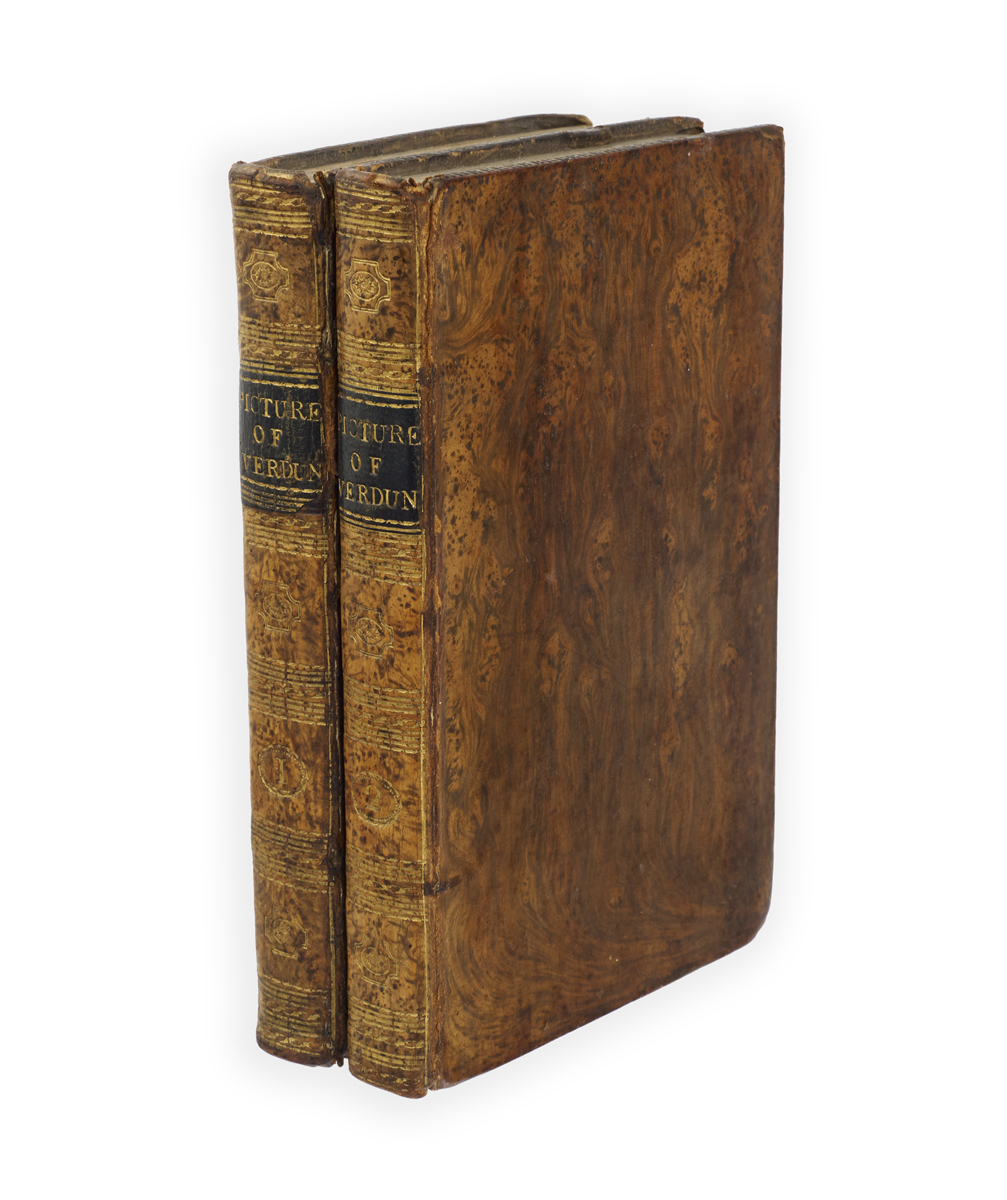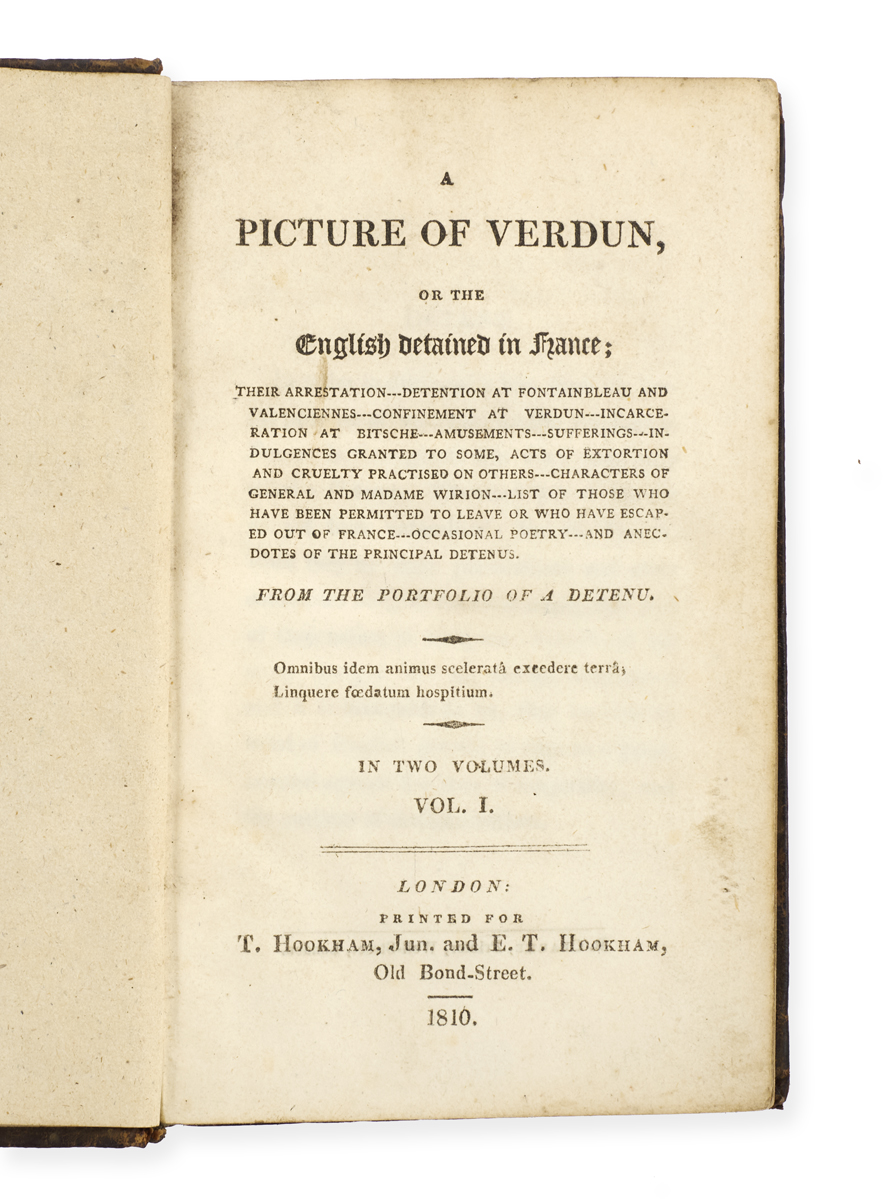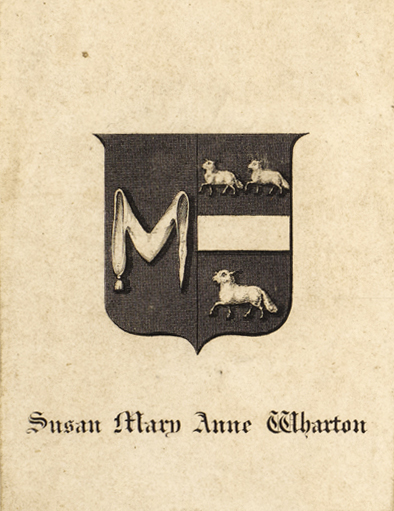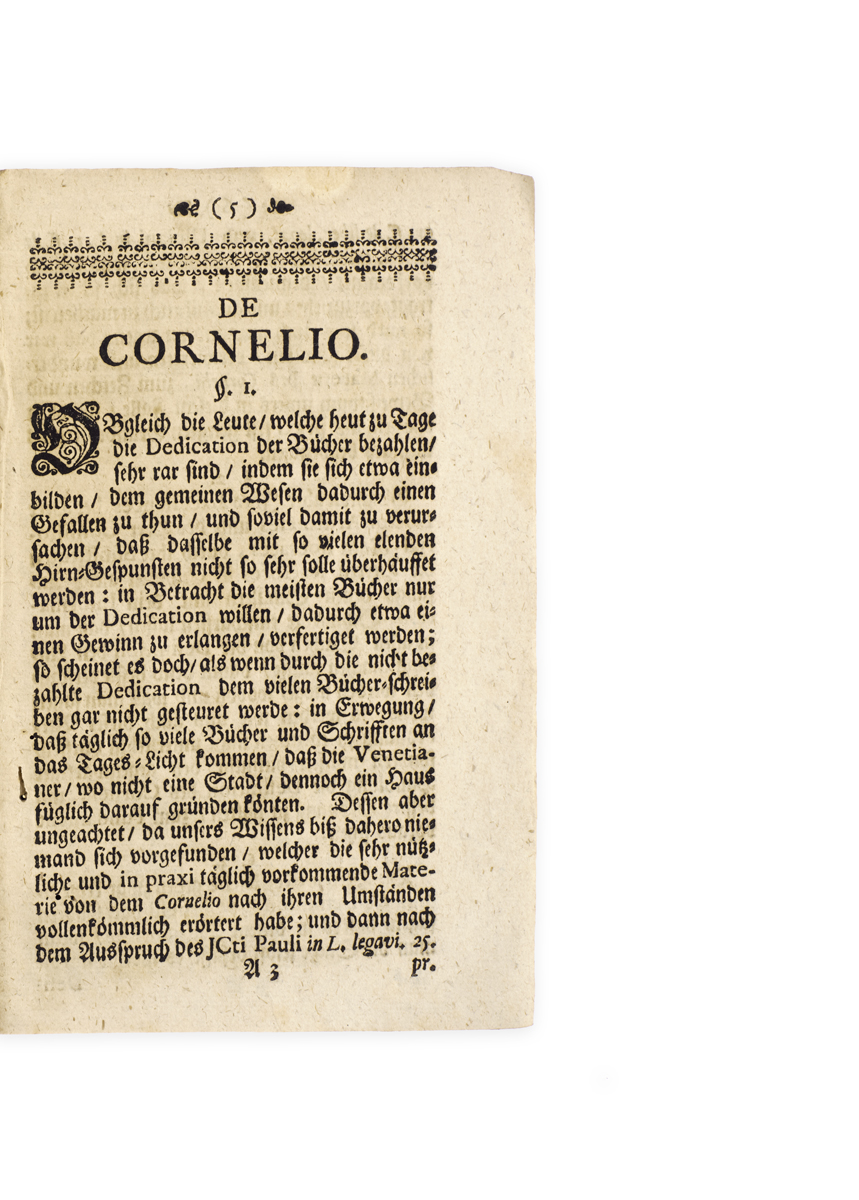


PRISON LIFE IN VERDUN
LAWRENCE, James Henry.
A Picture of Verdun, or the English Detained in France … from the Portfolio of a Detenu.
London, T. Hookham junior & E.T. Hookham, 1810.
Two vols, 8vo, I: [4], 292, II: [4], 263, [1]; very occasional light foxing, paperflaw to I I5 (toughing a few characters without loss), but an excellent set; in contemporary tree calf, spines gilt in compartments with gilt-lettered black morocco labels; slight cracks to joints, a few minor chips at extremities, two small dents to upper board of vol. I, corners a little bumped; engraved armorial bookplate of Susan Mary Anne Wharton to front pastedowns.

Added to your basket:
A Picture of Verdun, or the English Detained in France … from the Portfolio of a Detenu.
First edition of this remarkable account of life among the British prisoners in Napoleonic Verdun, following the mass arrest of English residents in and visitors to France.
Travelling in Napoleonic France in 1803 during a brief interlude of peace, James Henry Lawrence (1773–1840) and his father found themselves captured following Napoleon’s Prairial decree to detain all British subjects between the age of eighteen and sixty on French soil. Detained before the official renewal of hostilities, these captives were declared ‘détenus’ (hostages) and sent to Verdun in 1804 where, in return for a pledge of honour not to escape or bear arms, they lived in relative comfort amongst the locals, enjoying many of the luxuries of home. Lawrence, for instance, details how ‘one street, from its noise and bustle, received the name of Bond Street, and became the morning lounge’ (p. 68), regular balls, or card assemblies every Monday night, and ‘a pic nic supper’ where ‘every member brought a dish, and was obliged to sing a song or speak a speech …’ (p. 109). After several years, Lawrence eventually escaped by impersonating a German and returned to London where he published A Picture of Verdun.
Lawrence’s book is ‘of real value for the picture it gives of the deportment of an English colony, mostly consisting of idle and fashionable people, in peculiar and almost unprecedented circumstances. It is full of complaints of official misdemeanours, but the tone adopted towards the French nation is just and liberal, and it even bears reluctant testimony to the capricious magnanimity of Napoleon’ (DNB).
Provenance: Durham-born Susan Mary Anne Wharton (1767–1855), daughter of General John Lambton (1710−1794) and Lady Susan Lyon (d. 1769), and wife of John Wharton (1765–1843), of Skelton Castle, MP for Beverley.
For Wharton, see Hazlitt, A Roll of Honour (1908), p. 258; Labouchere, Ladies’ Book-plates (1895), p. 328.

